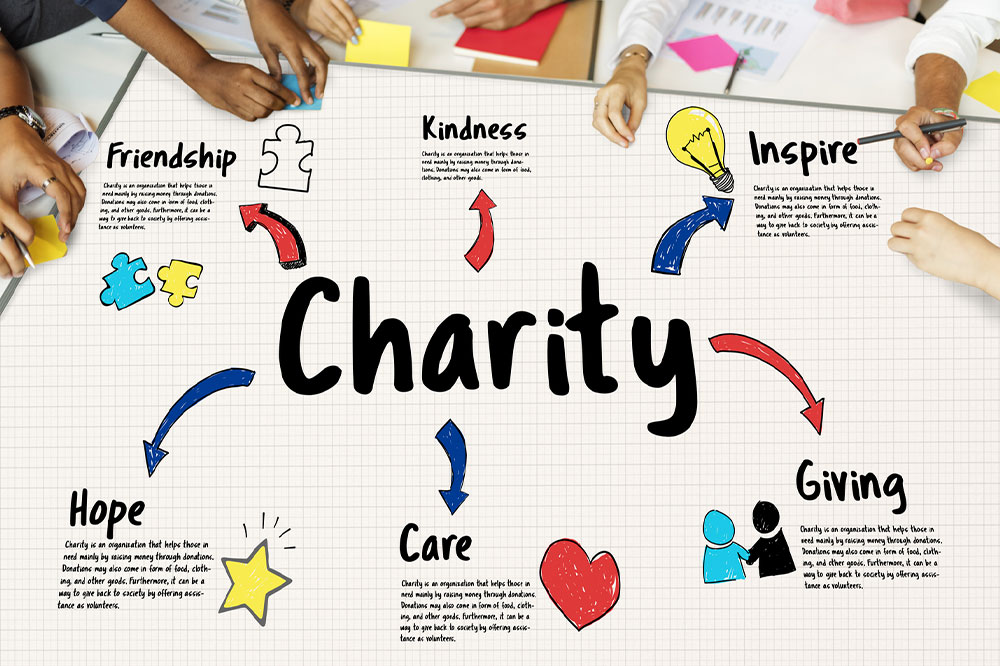Comprehensive Guide to Choosing the Right Charity for Your Donations
This comprehensive guide provides practical tips for selecting the right charity, emphasizing research, impact assessment, and personal involvement. It highlights key focus areas, evaluates credibility, and suggests ways to maximize your donation impact, whether through financial contributions or volunteering, helping donors make meaningful, sustainable differences in society.

Comprehensive Guide to Choosing the Right Charity for Your Donations
Engaging in charity work is among the most impactful ways to contribute to societal well-being and foster positive change. Nonprofit organizations and charitable groups serve as vital pillars in building a more just and equitable society by addressing a wide spectrum of social, environmental, and humanitarian issues. For individuals looking to donate, selecting the most suitable charity requires careful consideration, research, and understanding of various factors. This detailed guide aims to walk you through the essential steps to identify and support charities that align with your values, maximize your impact, and ensure your generosity makes a meaningful difference.
Before you start donating, it’s crucial to understand the different areas of charitable work and how organizations operate within these sectors. This clarity helps you make informed decisions and directs your support toward causes you genuinely care about.
Understanding Key Focus Areas of Charitable Work
Charities operate across diverse fields, each aiming to tackle specific societal challenges. Here are some of the most common and impactful areas:
Educational Initiatives: Charities working in this domain focus on building schools, providing scholarships, training teachers, and improving literacy rates. Their goal is to create sustainable educational opportunities, especially in underserved communities.
Healthcare Support: These organizations help those affected by illnesses like cancer, HIV/AIDS, or neglected diseases. They often fund treatments, provide medical supplies, and support research efforts to combat health issues.
Basic Needs and Social Welfare: This includes groups providing shelter, nutritious food, clean water, and sanitation facilities. Support for orphanages, senior homes, and community kitchens fall under this category.
Disaster Relief and Emergency Assistance: These organizations mobilize quickly during natural calamities, pandemics, or crises to deliver emergency supplies, medical aid, and rescue operations.
Additional sectors include:
Community Development: Initiatives aimed at empowering communities through economic development, education, and social programs that reduce poverty and promote self-sufficiency.
Environmental Conservation: Groups working on protecting forests, rivers, oceans, and promoting sustainability efforts like reforestation and pollution control.
Animal Welfare: Organizations dedicated to rescuing, rehabilitating, and protecting domesticated and wild animals, ensuring ethical treatment and habitat preservation.
Thoroughly assessing a charity’s credibility beforehand is essential to ensure your donations reach the intended beneficiaries. This means verifying their transparency, efficiency, and track record of impact.
Evaluating Needs and Impact of Charities
Understanding why a particular organization merits your support involves examining their needs and the tangible outcomes they achieve. Many reputable charities are transparent about their operations, publishing financial reports, success stories, and impact data. This transparency builds confidence that your donations are used effectively.
When studying a charity’s impact, look into:
Financial accountability and audit reports
Specific projects and outcomes achieved
Operational efficiency, such as the percentage of funds spent directly on programs versus administrative costs
Long-term sustainability and scalability of their efforts
Trustworthy organizations tend to show consistency, measurable results, and a clear mission alignment. Evaluating these factors helps you contribute to groups that genuinely make a difference.Seeking Expert Recommendations and Utilizing Resources
Leveraging the expertise of philanthropic advisors, charitable evaluators, and social responsibility consultants can streamline your decision-making process. Reputable platforms and charity ratings, such as Charity Navigator, GuideStar, or BBB Wise Giving Alliance, provide comprehensive assessments based on factors like transparency, efficiency, and impact.
Following insights from these evaluators can help you identify high-performing and reputable charities, ensuring your donations make a significant difference.
Conducting Personal Research for Better Insights
Beyond expert advice, conducting your own research deepens your understanding of potential charities. Visit their official websites to review mission statements, case studies, and financial disclosures. Engage with current or past donors, read independent reviews and news articles, and analyze their annual reports to get a comprehensive view of their operational integrity and effectiveness.
When selecting a charity, consider your available resources, including your financial capacity and time. Balancing these with potential impacts ensures your contribution is both meaningful and sustainable.
Volunteering: A Hands-On Approach to Charitable Giving
Active involvement through volunteering offers unique insights into how organizations run and the real-world impact of their programs. Volunteering can help you verify transparency, gauge their operational effectiveness, and understand the community’s needs firsthand. It also allows you to build relationships within the community and see the direct results of your support.
Supporting Local and Smaller Charities
While large, well-known charities often have extensive resources and reach, smaller and local organizations can sometimes deliver more targeted and transparent aid. Supporting local charities fosters community development and allows donors to see the immediate impact of their generosity. These organizations are often more agile, able to adapt quickly, and open to direct involvement and feedback from their patrons.
Engaging with local charities also strengthens community bonds and can foster a sense of collective responsibility, especially when addressing local issues like homelessness, education, or environmental conservation.
Overcoming challenges in charitable giving involves research, due diligence, and understanding the importance of choosing organizations that align with your values and expectations. Thoughtful donation strategies, combined with active engagement, can maximize your social impact, foster trust, and promote sustainable development.
Ultimately, supporting charitable causes is a meaningful way to contribute to societal progress, whether through financial support, volunteering, or advocacy. By educating yourself about different organizations and donation strategies, you can make informed decisions that create lasting positive change in communities worldwide.





